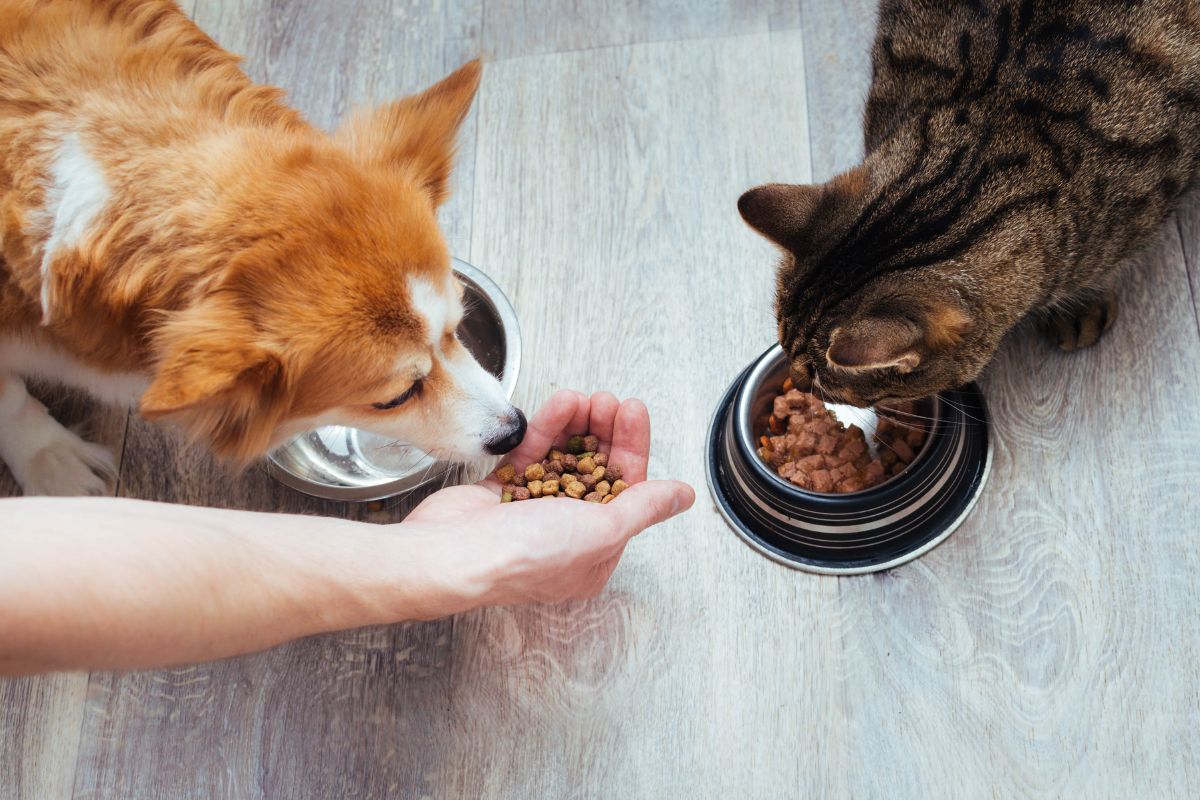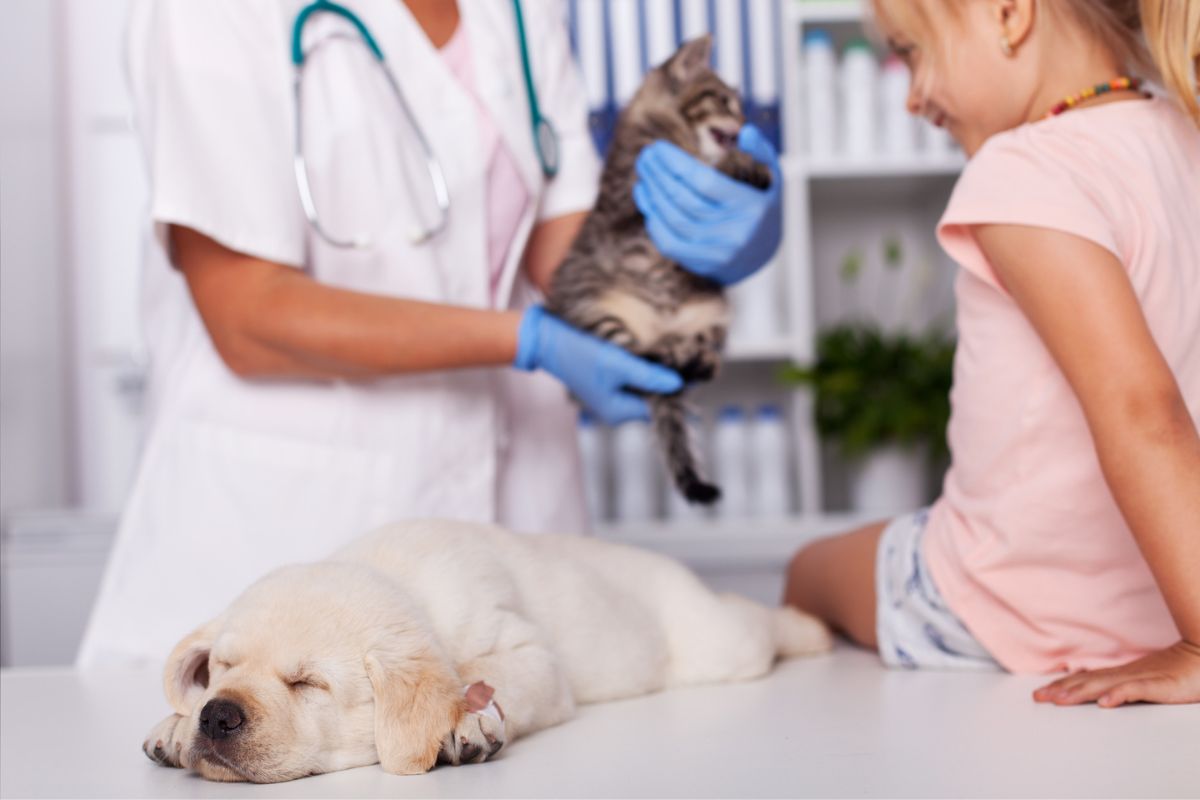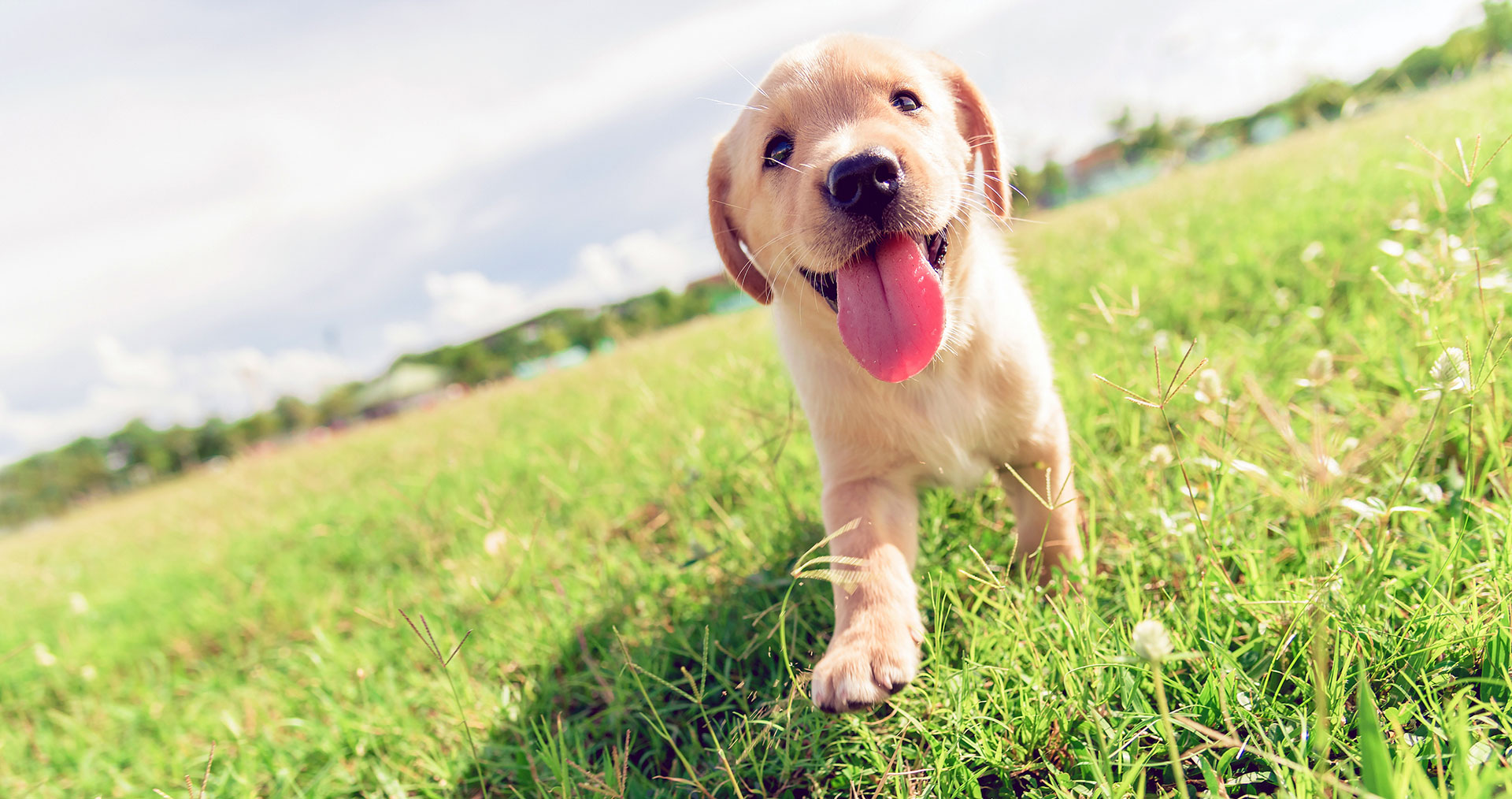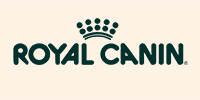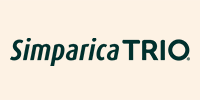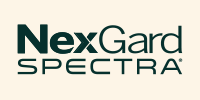Ensuring your new furry family member grows up happy and healthy starts with proper nutrition. During the first twelve months, puppies and kittens undergo significant growth in both body and mind. The right nutrition is essential during this stage to support the development of strong bones, joints and muscles whilst providing the energy necessary for them to play and learn.
Let’s take a look at the nutritional needs, optimal food choices, and feeding habits that will set your pet up for a healthy, energetic life.
Essential nutrients for puppies and kittens
Puppies and kittens have specific nutritional needs during their rapid growth phase. Their diet should include the following essential nutrients:
- Carbohydrates: They help to power the brain and nervous system and are found in rice, oats and corn.
- Lipids: Essential fats found in meat, chicken, fish and oils. While providing energy, they also help to keep their skin and coat as healthy and luscious as ever.
- Vitamins and minerals: These are a great source of magnesium for muscles, iron for healthy blood, calcium for strong bones and vital vitamins. Vitamins help with blood clotting and keeping healthy vision. The food to look out for here includes vegetables, meat, chicken, fish and grains.
- Proteins: The benefits of proteins include strong and healthy muscles, skin and coat, and helping the immune system to fight infection. Proteins are found in meat, fish and chicken.
- Omega-3 fatty acids: Particularly one known as DHA, found in oily fish like anchovy, mackerel and sardines, are critical for development of the eyes and brain in puppies and kittens.
- Omega-6 fatty acids: Found in vegetable oils, they also help promote a strong immune function.
- Calcium: These days, excess calcium in puppy food is more common than a deficiency. High levels of calcium and too many calories may increase the risk of certain developmental bone and joint diseases; particularly in large and giant dog breeds (dogs weighing over 25kg as an adult). Ask your vet how much calcium your puppy needs.
One pet food brand that provides a well-balanced diet for puppies and kittens in Hill’s Science Diet. Their puppy and kitten foods have meat as the first ingredient; are highly digestible; contain a clinically proven combination of antioxidants including vitamin E and vitamin C shown to promote a healthy immune system in puppies; contain high levels of DHA from top-quality fish oil for brain and eye development, balanced minerals for strong bones and teeth, and overall provide the correct balance of nutrients for your pet. If you have a Best for Pet Wellness Plan membership, you can get 10% off Hill’s Science Diet pet food sold at your clinic.
Choosing the right nutrition
When choosing food for your puppy or kitten, the first step is choosing a complete and balanced diet for the ‘growth of puppies’ or the ‘growth of kittens’. Look for this information on the label. Secondly, look out for easily digestible puppy or kitten food. This means you can feed them smaller amounts (which also means there will be fewer stools to pick up in the backyard, win-win!).
Our Best for Pet Vets recommend ‘super premium’ food which is typically found in pet stores and vet clinics. Super premium food provides all the nutrients your dog and cat need to sustain optimal health throughout their life.
Supermarket pet food brands are usually classed as ‘premium’ foods. While these may be more budget-friendly, they tend to contain fewer ingredients, and the companies producing them might invest less in research. Some of these diets may not be optimal for your pet and have been likened to fast food for humans.
Alternatively, a raw diet is an option. However, it demands time and careful supplementation, as pure meat doesn’t provide a well-rounded, nutrient-rich diet. A raw diets also increases the risk of food-borne illnesses caused by harmful bacteria like Salmonella. Children, the elderly and pregnant women are at a greater risk for developing more severe symptoms from these illnesses which is why a raw diet isn’t recommended for families with young children.
Your vet team can help you choose a diet suitable for your puppy or kitten. They will consider your pet’s breed, age, weight and lifestyle while keeping the food delicious so your pet will enjoy eating it! They can also give you guidelines on what portions to feed your pet to help keep them at a healthy weight.
Building healthy eating habits
Puppies and kittens thrive on frequent, smaller meals—three to four times a day during their early months, transitioning to two meals as they mature. This approach supports better digestion and metabolism.
Maintaining a healthy weight
Pairing a balanced diet with an active lifestyle ensures your pet maintains a healthy weight.
Maintaining a healthy weight for your puppy or kitten is extremely important for their overall health and wellbeing. It can help keep their bones, joints, and muscles strong and healthy, and it can help reduce the risk of serious health conditions such as diabetes, heart disease, and types of cancer. Keeping dogs at a healthy weight has been proven to extend their lifespan by up to two years compared to their heavier counterparts.
Monitor your puppy’s weight regularly and work with your vet to make adjustments to ensure they stay at their ideal weight.
Talk to your vet if you have any questions about your puppy or kitten’s diet.
